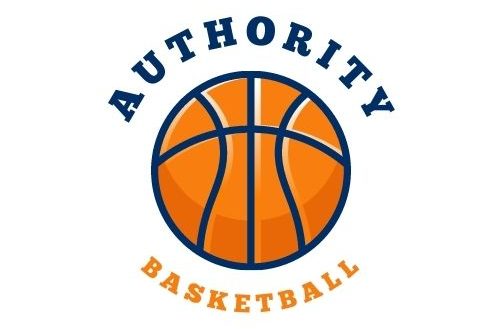Not all players are equal in ability, no matter which sport you look at.
In basketball, sometimes you will find yourself in a situation where you’re teamed up with players who don’t necessarily have as much ability as you do, especially if you play pickup games on a regular basis.
Having the correct attitude is crucial if you’re to navigate through such a situation, as throwing a strop or acting like a “better than everyone else” diva will only create friction between yourself and those teamed up with you.
But unfortunately, not everyone handles this scenario in the correct way.
That’s why this article has been put together to guide people on how to play basketball with team mates who are worse off in ability.
Let’s get started then, shall we?
Check out the video below as it aptly summarizes what you can do when presented with such a predicament:
Instead, if you’re after a more detailed breakdown of how you should handle this, then read on!
How to deal with bad team mates in basketball
So, you’ve just started playing on a new basketball court and your team is struggling against an opponent that’s twice as good.
You’re not used to losing yet, or maybe you don’t have confidence in yourself after being dropped from the school squad last year.
Whatever the reason for this loss, there are things you can do to help turn it around – and even if you think you already know what to do, try these out anyway!
1. Avoid getting into verbal arguments

The first thing you should avoid doing is fighting over every single shot, rebound etc., which will only add more frustration to an already difficult situation.
If someone else makes a mistake then go easy on them afterwards (perhaps saying “good effort” would suffice) but don’t get involved in any post-match discussion about why it happened.
Instead focus on encouraging each other during games.
This doesn’t mean cheering loudly whenever one member of the team gets a basket; instead encourage them by shouting words like “well done!” or “keep it up”, especially when they complete a successful pass or score a point.
It also means ignoring bad calls made by referees, such as fouls called against opponents who were clearly infringing in some way or committing an in-game offence.
Lots of professional basketball players have a habit of arguing with referees, but this certainly isn’t a characteristic that you should look to emulate!
Instead, agree beforehand how much time you’ll give the officials before starting play again so everyone knows exactly where they stand.
2. Stay positive when team mates let you down

One surefire way to ruin a game is to start arguing about poor refereeing decisions, missed opportunities or whatever else takes place.
Don’t allow yourself to fall into negative thoughts – you must stay positive throughout, focusing solely on the task at hand rather than dwelling on past failures.
If something goes wrong, whether you didn’t receive the ball properly or another player misses their free throw then say nothing at all.
It may be tempting to shout or point out the error immediately, but resist the temptation because you’ll end up making matters worse.
Rather wait until the next break or half time and go back to talking positively about the rest of the match.
By keeping quiet you’ll show respect towards both yourself and your teammates, as well as avoiding unnecessary conflict.
3. Communicate regularly to improve team cohesion

As mentioned above, you shouldn’t spend too long discussing errors once they happen unless necessary.
However, communicating frequently between shots and plays during matches is helpful for improving teamwork.
Don’t forget to communicate effectively though.
Be a compassionate competitor.
For example, if a teammate shoots badly then explain why to them without blaming anyone else.
The same applies to any technical problems that occur, such as missing a call from the referee.
After practice sessions ask yourselves questions like “What did we struggle with today? What could we work on tomorrow?”
Then discuss solutions together to ensure everybody improves through communication alone.
Another important aspect of effective communication is speaking respectfully.
Never yell or insult your fellow team mates no matter how frustrated you become, and always use proper language and grammar when expressing ideas.
4. Encourage team mates when they make mistakes
When things aren’t going right for your team remember to keep encouragement coming.
Acknowledge achievements, whether they’re individual points scored or overall improvements achieved in general.
Showing support for your teammates isn’t enough, however – your tone needs to change depending on what happens.
Positive feedback becomes louder and more enthusiastic if something good occurs while criticism remains calm and measured if they fail.
For instance, if a teammate lets the basketball bounce over their head several times without successfully catching it, tell them to keep their chin up rather than reminding them of previous failures.
On the flip side, if they miss a shot repeatedly then remind them of their strong performances earlier in the week.
Remember that you don’t need to talk directly to your teammates for them to hear what you want.
When giving constructive feedback simply make eye contact with those concerned and speak calmly.
They’ll soon pick up on your message regardless!
What makes a team mate bad in basketball?
It’s really important for this to be clarified, because not everyone is able to judge whether their team mate is good or bad.
That’s where we come in and give you a jumpstart, by highlighting some of the habits that bad team mates tend to exhibit.
Lack of punctuality
Coming late to practice sessions and matches is a definite no-no.
It indicates a lack of respect for ones team mates and it shows that the person isn’t taking the game seriously enough to make a positive impact on the court for their team.
Selfishness on the court
You’ve probably witnessed this first hand.
A team mate who hogs on to the ball for an unnecessary amount of time and constantly tires to showboat on the court definitely isn’t a good one.
The self-centeredness in their play means that they put themselves before the needs of the team.
Part of the problem here stems from the desire in such players to “have all the glory” when the team wins.
So, they usually try their best to make those impossible shots from beyond the three-point line or regularly attempting to drive through multiple opponents and dunk the ball into the rim.
Regularly complaining
A misplaced pass or a wayward shot tends to draw a reaction out of a bad team mate.
They often feel the need to vilify the person who made the mistake instead of trying to offer them advice on how they could have approached the play in a better way.
Such confrontations can sadly lead to intense verbal arguments and even physical scuffles between team mates, so it’s important that you recognize those people on your team who complain a lot and approach them with care.
Low skill level
Finally, a bad basketball team mate can also be one who just isn’t that good at playing the sport!
They could be prone to doing things like:
- Misplacing passes;
- Shooting wildly inaccurately
- Failing to track opposition runners
- Being careless at defensive screening
Here’s the catch though.
The earlier you find out that a team mate is going to struggle in a certain match environment, the faster you can work out a way to compensate for their flaws and help them become a more valuable member of the squad.
Conclusion
It’s never easy playing on the losing end of a team and not having the belief that a recovery is possible.
But in such cases, you have to adapt to the team mates that you have even if your talent level far exceeds theirs.
Now before you go, check out some of our other helpful content like:
- Dealing with a difficult basketball coach;
- Controlling your temper whilst playing basketball;
- Improving in basketball; and
- Managing nervousness prior to a basketball game
- The Most Popular Prop Bets Made During the NCAA Final Four Tournament - February 9, 2024
- Evaluating the Enigma: Does LeBron James Possess a No-Trade Clause? - May 16, 2023
- Gravity’s Dance: Unveiling the Art of Bouncing Basketballs - May 16, 2023

